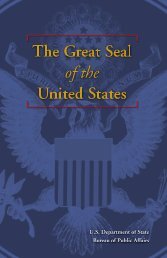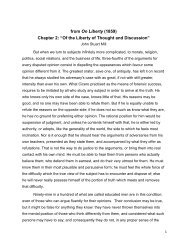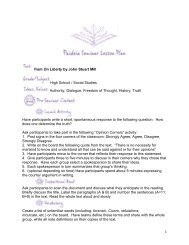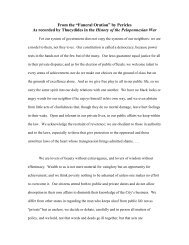Rousseau_contrat-social
You also want an ePaper? Increase the reach of your titles
YUMPU automatically turns print PDFs into web optimized ePapers that Google loves.
them. It was to my mind a fine oath that was taken by the soldiers of<br />
Fabius, who swore, not to conquer or die, but to come back victorious --<br />
and kept their oath. Christians would never have taken such an oath;<br />
they would have looked on it as tempting God.<br />
But I am mistaken in speaking of a Christian republic; the terms are<br />
mutually exclusive. Christianity preaches only servitude and dependence.<br />
Its spirit is so favourable to tyranny that it always profits by such a<br />
régime. True Christians are made to be slaves, and they know it and do<br />
not much mind: this short life counts for too little in their eyes.<br />
I shall be told that Christian troops are excellent. I deny it. Show me<br />
an instance. For my part, I know of no Christian troops. I shall be told<br />
of the Crusades. Without disputing the valour of the Crusaders, I answer<br />
that, so far from being Christians, they were the priests' soldiery,<br />
citizens of the Church. They fought for their spiritual country, which<br />
the Church had, somehow or other, made temporal. Well understood, this<br />
goes back to paganism: as the Gospel sets up no national religion, a<br />
holy war is impossible among Christians.<br />
Under the pagan emperors, the Christian soldiers were brave; every<br />
Christian writer affirms it, and I believe it: it was a case of<br />
honourable emulation of the pagan troops. As soon as the emperors were<br />
Christian, this emulation no longer existed, and, when the Cross had<br />
driven out the eagle, Roman valour wholly disappeared.<br />
But, setting aside political considerations, let us come back to what is<br />
right, and settle our principles on this important point. The right<br />
which the <strong>social</strong> compact gives the Sovereign over the subjects does not,<br />
we have seen, exceed the limits of public expediency.[46] The subjects<br />
then owe the Sovereign an account of their opinions only to such an<br />
extent as they matter to the community. Now, it matters very much to the<br />
community that each citizen should have a religion. That will make him<br />
love his duty; but the dogmas of that religion concern the State and its<br />
members only so far as they have reference to morality and to the duties<br />
which he who professes them is bound to do to others. Each man may have,<br />
over and above, what opinions he pleases, without it being the<br />
110











